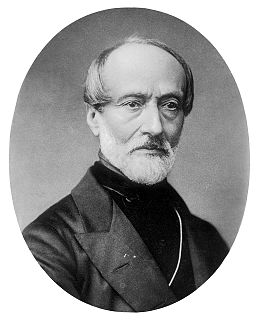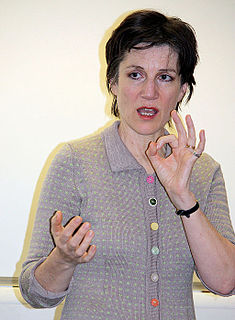A Quote by Giuseppe Mazzini
Great revolutions are the work rather of principles than of bayonets, and are achieved first in the moral, and afterwards in the material sphere.
Quote Topics
Related Quotes
In the political, the social, the economic, even the cultural sphere, the revolutions of our time have been revolutions "against" rather than revolutions "for"... On the whole throughout this period the man--or party--that stood for doing the positive has usually cut a pathetic figure; well meaning but ineffectual, civilized but unrealistic, he was suspect alike to [by both] the ultras of destruction and the ultras of preservation and restoration.
On how the motion of a planet defines its sphere:
... and thus it comes about gradually by the linking and accumulation of a great many revolutions that a kind of concave sphere is displayed, having the same center as the Sun, just as by a great many circles of silken thread, linked with each other and wound together, the dwelling of a silkworm is made.
The two revolutions, I mean the annual revolutions of the declination and of the centre of the Earth, are not completely equal; that is the return of the declination to its original value is slightly ahead of the period of the centre. Hence it necessarily follows that the equinoxes and solstices seem to anticipate their timing, not because the sphere of the fixed stars moves to the east, but rather the equatorial circle moves to the west, being at an angle to the plane of the ecliptic in proportion to the declination of the axis of the terrestrial globe.
We continually forget that the sphere of morals is the sphere of action, that speculation in regard to morality is but observation and must remain in the sphere of intellectual comment, that a situation does not really become moral until we are confronted with the question of what shall be done in a concrete case, and are obliged to act upon our theory.
It must never be forgotten that nothing that is really great in this world has ever been achieved by coalitions, but that it has always been the success of a single victor. Coalition successes bear by the very nature of their origin the germ of future crumbling, in fact of the loss of what has already been achieved. Great, truly world-shaking revolutions of a spiritual nature are not even conceivable and realizable except as the titanic struggles of individual formations, never as enterprises of coalitions.
In this world laws are written for the lofty aim of "the common good" and then acted out in life on the basis of the common greed. In this world irrationality clings to man like his shadow so that the right things get done for the wrong reasons - afterwards, we dredge up the right reasons for justification. It is a world not of angels but of angles, where men speak of moral principles but act on power principles; a world where we are always moral and our enemies always immoral; a world where "reconciliation" means that when one side gets the power and the other side gets reconciled to it.
women's entry into the public sphere can be seen not merely as the result of contemporary economic pressures, the high rate of divorce, or the success of the feminist movement, but rather as a profound evolutionary response to a pervasive cultural crisis. Feminine principles are entering the public realm because we can no longer afford to restrict them to the private domestic sphere, nor allow a public culture obsessed with Warrior values to control human destiny if we are to survive.
I think it's important to reason from first principles rather than by analogy. The normal way we conduct our lives is we reason by analogy. [With analogy] we are doing this because it's like something else that was done, or it is like what other people are doing. [With first principles] you boil things down to the most fundamental truths…and then reason up from there.






































